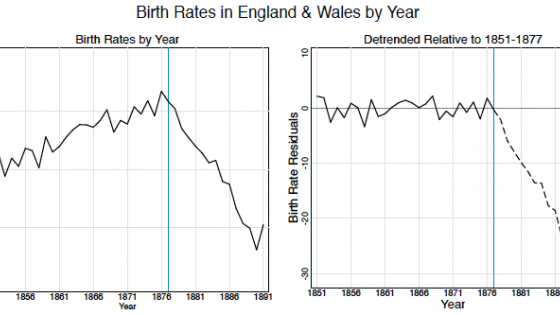Discussion paper
DP15146 FROEBEL’S GIFTS: HOW THE KINDERGARTEN MOVEMENT CHANGED THE AMERICAN FAMILY
Nineteenth-century social reformers promoted the establishment of kindergartens as a remedy for the problems associated with industrialization and immigration. We evaluate the impact that the roll-out of the first kindergartens in American cities had on mothers and their children. Consistent with the predictions of a quantity-quality trade-off model, immigrant families exposed to kindergartens significantly reduced fertility. Their offspring at age 10-15 were more likely to attend school, they worked less, and as adults, they had fewer children. We also unveil positive language spillover effects of kindergarten education on immigrant mothers illustrating the importance of kindergartens for social integration.
£6.00

